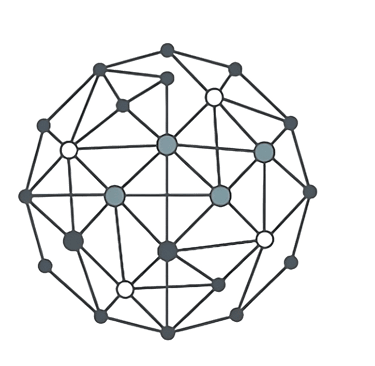Module 1: Introduction to Palo Alto Networks
Overview of Palo Alto Networks and its Security Operating Platform
Key Features and Benefits of Palo Alto Next-Generation Firewalls
Security Policies and Rule Enforcement
Panorama: Centralized Management
Module 2: Palo Alto Networks Firewall Architecture
Overview of Next-Generation Firewall Architecture
Control and Data Plane Separation
Single Pass Parallel Processing (SP3) Architecture
Security Zones and Interfaces
Module 3: Initial Configuration of Palo Alto Networks Firewalls
Setup and Access to the Firewall
Licensing and Registration Process
Initial Setup: Management Interface Configuration
Admin User Account Management and Authentication
Module 4: Security and NAT Policies
Understanding Security Policies
Best Practices for Policy Configuration
Creating and Managing Security Policy Rules
Understanding and Configuring Network Address Translation (NAT) Policies
Module 5: Application Identification (App-ID)
Overview of App-ID Technology
Identifying Applications Traversing the Network
Controlling Application Traffic with App-ID
Application Groups and Filters
Module 6: Content Inspection and Threat Prevention
Overview of Content-ID
Intrusion Prevention System (IPS)
Antivirus, Anti-Spyware, and File Blocking Profiles
Configuring and Managing Threat Prevention Profiles
Module 7: User Identification (User-ID)
What is User-ID?
Mapping Users to IP Addresses
Integration with Directory Services (Active Directory, LDAP)
Configuring User-ID Agent and Group Mapping
Module 8: URL Filtering and SSL Decryption
Understanding URL Filtering and Best Practices
Creating URL Filtering Profiles and Policies
SSL Decryption: Concepts and Configuration
SSL Forward Proxy and Inbound Inspection
Module 9: GlobalProtect Configuration
Introduction to GlobalProtect
Configuring GlobalProtect Portal and Gateway
Client Configuration for Remote Users
Troubleshooting GlobalProtect Connectivity Issues
Module 10: High Availability (HA)
Concepts of High Availability
Active/Active and Active/Passive HA Modes
HA Configuration and Failover Testing
Synchronization of Configuration and Session Tables
Module 11: Panorama: Centralized Management
Overview of Panorama
Adding and Managing Firewalls with Panorama
Template and Device Group Configuration
Centralized Logging and Reporting
Module 12: Monitoring, Logging, and Reporting
Monitoring Traffic, Threats, and Performance
Logging Configuration: Log Forwarding and Filtering
Creating Custom Reports
Viewing System and Traffic Logs in Panorama
Module 13: Virtual Systems (VSYS)
Introduction to Virtual Systems
Configuring and Managing VSYS on Firewalls
Traffic Segmentation and Security Policies in VSYS
Module 14: Troubleshooting and Diagnostics
Basic Troubleshooting Tools (CLI Commands)
Session Table and Flow Logic
Troubleshooting Traffic Flow, NAT, and VPN Issues
Diagnosing Security Policy Mismatches
Module 15: VPN Configuration
Introduction to VPN (Site-to-Site and Remote Access)
IPsec VPN Configuration
Configuring Tunnel Interfaces and IKE Gateway
Troubleshooting VPN Connectivity Issues
Palo Alto Networks Certified Network Security Engineer
Empowering businesses with cybersecurity.
Business Enquiries @ +91-8284966606
© 2024. All rights reserved.


Email : support@elementarynetworksolutions.com
